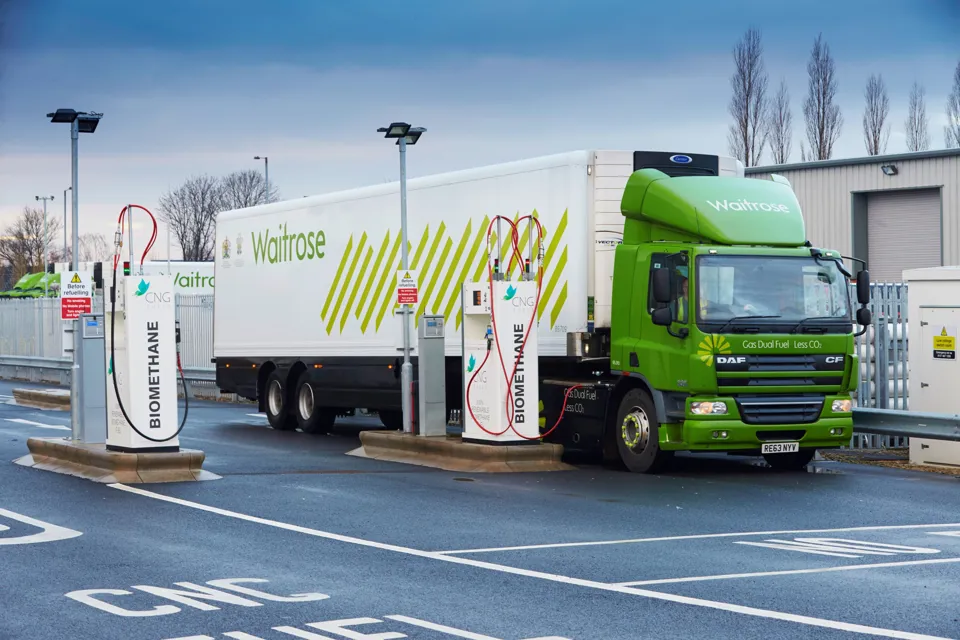Waitrose is to operate a fleet of 58 trucks running solely on renewable biomethane in the UK's first large-scale trial of its type.
The company is collaborating with CNG Fuels, which is opening a renewable biomethane fuelling station at Northampton - where Waitrose and John Lewis have their national distribution hub - for the project, which has received funding from the Office for Low Emissions Vehicles (OLEV) in partnership with Innovate UK.
The trucks will be used on long-haul, inter-city and urban runs, including trialling six zero-emissions refrigeration units powered by the truck’s gas engine.
The project aims to encourage UK fleet operators to switch from diesel to low-carbon biomethane fuel by demonstrating performance benefits, and by showing that CNG stations can support growing demand for gas.
Baden Gowrie-Smith, chief financial officer of CNG Fuels, said: "100% renewable biomethane fuel offers fleet operators the chance to dramatically cut carbon emissions, improve air quality and save money.
"We are now seeing increasing levels of interest and orders from fleets of all sizes.
"This study will help convince others to make the shift and demonstrate that this is a solution that can be scaled up rapidly within fleets."
The trial is due to finish in September 2019 and a team from the Centre for Sustainable Road Freight at Cambridge University will compare the fuel consumption and CO2 emissions of the CNG trucks with diesel equivalents in a range of settings.
It will also compare the performance of electric refrigeration units powered by the CNG engine with conventional units powered by auxiliary diesel engines.
Justin Laney, general manager central transport, John Lewis Partnership, added: “We're committed to reducing the emissions from our fleet.
"This study will help us quantify not just the carbon emissions reduction of using biomethane, but also the benefits of using our industry-leading clean refrigeration equipment which we expect to show significant benefits for air quality.
"We've worked with the University of Cambridge on a number of projects in the past, so look forward to the outcome of this latest collaboration.”

















Login to comment
Comments
No comments have been made yet.